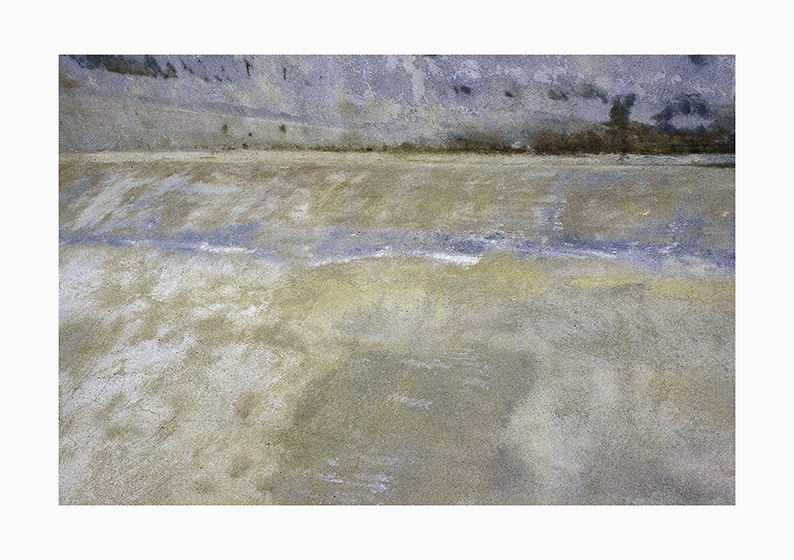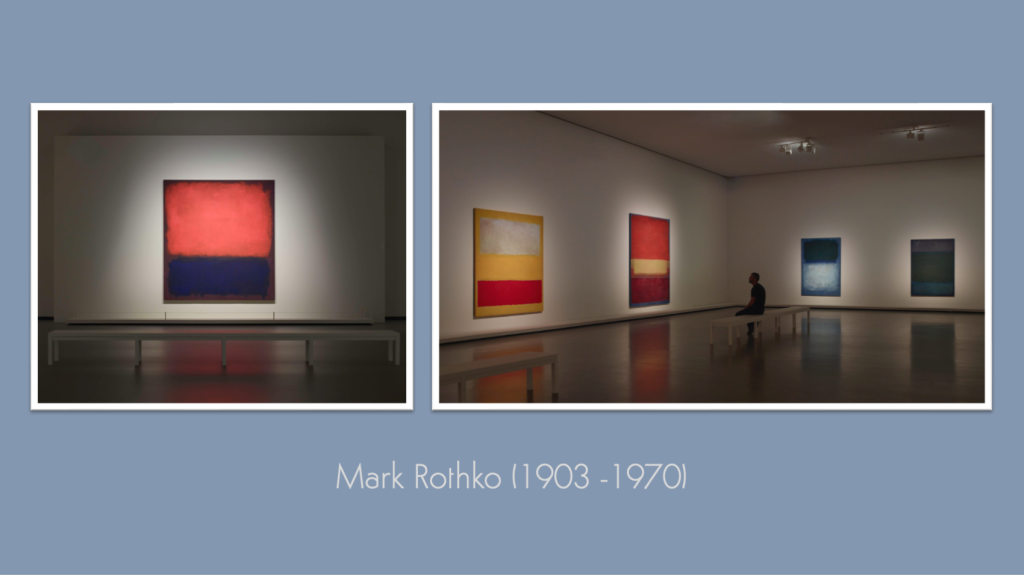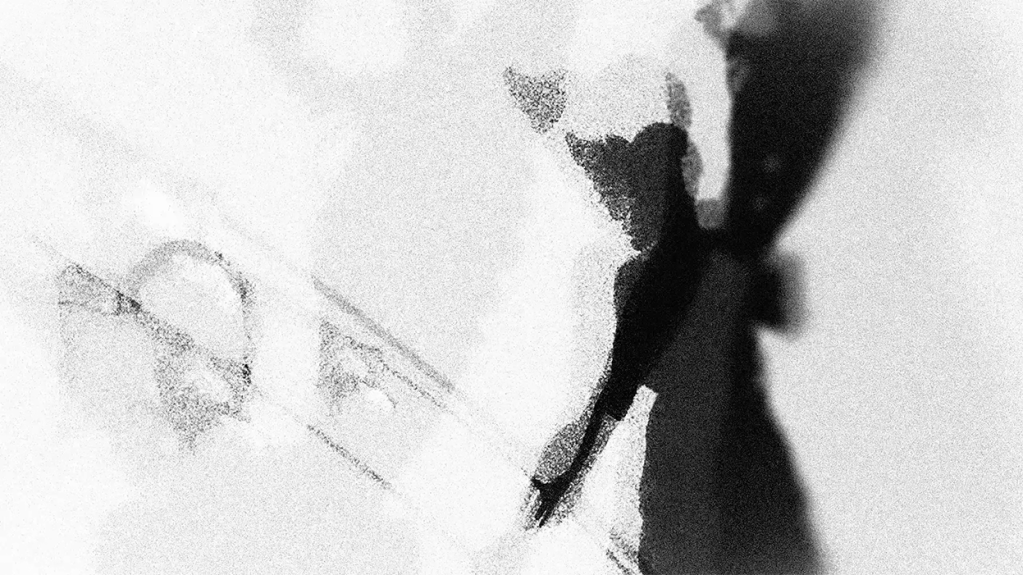
Andante quasi lento e contabile, the third movement from Victor Hely-Hutchinson’s A Carol Symphony, is one of my favourite things. Here’s why.
Admittedly, the lower 4th floor of a brick-built brutalist building is an unlikely fount of yuletide nostalgia. Even so, whenever I listen to Hely-Hutchinson’s A Carol Symphony, it is to this particular corner of this particular edifice my imagination travels first.
The corner in question is the base room for the undergraduate animation programme for which I was course leader, up until my resignation from the role in July 2019. Originally, there was very little ‘kerb appeal’ about this corner of the campus; the space in question had no natural daylight, and its ceiling dominated by a defunct network of ventilation tubes and vents. Over time, my staff and I transformed the unprepossessing bunker into a much envied cocoon of warm vibrant colour, modelled after a cinema foyer, complete with galleries of old movie posters, vintage folding cinema seats, and warm, pooling circles of light. I loved seeing the base room brimming with staff and students – as noisy together sometimes as a roost of parrots – deriving secret pleasure from the oft-repeated rituals of pushing chairs back under the tables after the students had left for their respective classes and restoring order to their scattering of film books, magazines and chocolate wrappers. On occasion, I feigned annoyance at their messiness, their apparent inability to eat a sausage roll without fountaining flakes of pastry over the base room’s rich red carpet, but in some heart-and-sinews way, I didn’t mind at all.
I likewise enjoyed the base room when it was empty and quiet, the orderliness and hush following the end of the autumn term, the majority of our students having upped sticks for Christmas. In direct conflict with edicts from campus managers and their kind, my colleagues and I would conspire to create further opportunities for our keenest students to continue working on campus in the days running up to the big holiday shut-down. In this one small way, I was trying to do as I’d been done by, recalling how supported I’d been made to feel by the teachers and tutors who’d populated my own educational experience; how it felt when my a-level art teacher trusted me to continue working in the classroom long after the school day was over; how it felt when he offered to make me a cup of instant coffee too, this simple erasure of hierarchy between master and the apprentice; how it felt during my Foundation Art degree, when the technician allowed me to work early, or late, in the workshop – because I was trusted; what it felt like to be a valued part of a community, where creativity was a shared act of support and time-giving, an existential thing more glorious than the precise letter of someone’s job description or the increments of a clock-face.
Thus, with a few industrious students scattered throughout the various studios and computer rooms, I myself would sit, not in my office, but rather at the large lozenge-shaped table in the middle of the base room, and finish off whatever remaining workload remained – usually writing heaps of feedback. The base room boasted a very large LED screen television and set of powerful speakers, and when the mood took me, I’d play Hely-Hutchinson’s A Carol Symphony at some considerable volume, it’s third slow movement filling the long empty corridor outside with its midnight-clear and swirling snow. I suppose I fancied myself as an Edward Scissorhands figure; while Edward produced wintery effects where once there was none by shaving blizzards from blocks of ice, I sent Hely-Hutchinson’s darkling dream of winter whirling out of the base room to meet the opening doors of the campus lift, always thrilling slightly at the idea that my foot-sore wearied colleagues might delight, as I did, at finding their workplace enhanced so unexpectedly.
This is what I tell myself, such is the chicanery of nostalgia. My colleagues more likely wondered why I appeared so intent on propelling Christmas before me when there was no one around to care or notice, spraying Hely-Hutchinson’s seasonal music about the place like one of those blowers of artificial snow. For some of them, I may have struck a rather tragic figure, sitting alone at a large communal table in a largely deserted brick fortress. Their ear-buds packed tightly into their ears, my students were, in most cases, entirely oblivious to the ice and nightscape of Hely-Hutchinson’s third movement blowing past their respective studios – and if they were listening, they were probably rolling their eyes.
I don’t really know what anyone else was thinking if and when they heard Hely-Hutchinson’s music moving through the quiet conduits of the empty building – spooky, magical, wonderful, like the advance of frost. I’ll more confidently tell you what I was thinking. I was thinking, ‘This is how you do it!’ This is how you see off the barbarism of the fluorescent lights and long walks of grey non-slip flooring! This is how you unfurl the dark-bright heart of a Narnian wood within the confines of a concrete silo. This is how you turn an ordinary corner on an otherwise ordinary day and find yourself somewhere magical.
The other thing I know is this: whenever I hear the Andante quasi lento e contabile, I miss my former colleagues, all of us always knackered, all of us true-believers in the job-at–hand, and I miss all those twenty-somethings with their explosive sausage rolls and unicorn-coloured hair. I miss them, as I miss their delight in acts as simple as my donning a ridiculous santa hat, or handing around a mass-produced tin of mass-produced chocolates, recognising that delight for what it was – the trust generated by the moments when tutors choose to make themselves back into people. And yes, I miss pushing in all their bloody chairs.
But rather like one of those mass-produced chocolates in those big mass-produced tins, this specific bonbon of Christmas nostalgia is wrapped around a softer centre, for baked inside this Proustian madeleine is another. That I cleave so affectionately to Hely-Hutchinson’s atmospheric conflation of The Coventry Carol and The First Noel has as much to do with the age I was when I first heard it, as it does with the particular merits – or otherwise – of the music itself.
First and foremost, Andante quasi lento e contabile reminds me of my father in ways both welcome and less so. Hely-Hutchinson’s music carries inside it a very pure memory of my family, and thanks to the internet, I can be super-exact about its temporal coordinates: Christmas Eve, 1984, a little after 5pm. Our Christmas tree is sitting on top of the triangle-shaped coffee-table, squidged between the armchair and the sofa and throwing up scintillas against the rice-pudding sheen of our chip paper wallpaper. Dad is home early from work, and we’re all waiting for the final episode of The Box Of Delights to begin, the BBC’s adaptation of John Masefield’s novel. For its signature tune, The Box Of Delights has taken the plucked harp from Hely-Hutchinson’s take on The First Noel. I don’t know the provenance of the music then, but I absolutely delight in the way it calls immediately for the hairs on my arms to rise in anticipation of what it to come. I’m fizzing with a curious brew of ‘Christmasness’ and dread, with pleasure and suspense – with pleasure in suspense. As the gas fire hisses, filling our living room with luxurious heat, I realise this is Christmas right here, right now; that it lives not in the brash adverts for children’s toys, or on Top of the Pops, but here, in this moment of exciting suspenseful darkness, here in this haunted music-box of a Christmas carol. For the record, it’s not just me, as someone wrote in the Radio Times back in 2015:
“The Box of Delights made a big impression on those who saw it when it originally aired more than three decades ago on BBC1. Mainly because it somehow managed to be the image of snowy Edwardian chocolate-box perfection, and pretty bloody creepy at the same time…”
That dad was home to watch this final episode with us is no small part of why this memory endures so powerfully. In common with my future self, who will later propel Hely-Hutchinson’s music out into the empty spaces of a near-deserted University campus in an effort to transform it for others, my pleasure at watching The Box of Delights was a pleasure doubled because it was pleasure shared. That my dad was there, taking this fantastical journey with me, seemed to be of special importance. Our family felt very close that Christmas Eve, drawing closer, Hely-Hutchinson’s music helping us towards each other with all its mystery, threat and promise of magic. This was the start of Christmas proper, the front door shut against the cold, work finished, school a distant memory, and the embargo on that year’s special purchases of Paynes Chocolate Brazils and Turkish Delight finally lifted.
In March of the following year, my father would leave us for another life with another family. Realistically speaking, this last Christmas spent as a family was surely a strained and miserable episode for my parents, and I think for my older brother too, who knew all of it before me. I wonder what they were thinking about as Hely-Hutchinson’s music began to play on our television? At least two of us were dreaming about journeying to another world entirely. It beggars belief I failed to intuit some of what was happening before it happened. Or maybe I did? Maybe the proof of what I knew is found in everything I’ve already written here, the import, clarity and preciousness of this perfect Christmas memory deriving from a child’s desperate act of magical thinking.
When, as sometimes happens, I find myself crying at the Andante quasi lento e contabile, I always try to figure out why. It is not a simple grief, because sometimes the tears feel like they are the physical expression of a surplus of hope. They squeeze out of me, silvered and involuntary. I suspect they are tears of frustration too, of disappointment with the synthetic sentimentality of the Christmas season and my struggle to go on feeling it – any of it. Hely-Hutchinson’s music surely makes me yearn for long walks at midnight on Christmas Eve, crumping across thick snow, and I think, if one day I do take a walk like that, I will come to understand how to ‘do’ Christmas again in some profound, legitimate way, and that it will fit with me again, as I think it once did.
And when I cry a bit, yes, I’m missing all those bloody students and the feeling being there for them gave me. I think, hand-on-heart, what I’m experiencing when I hear Hely-Hutchinson’s Andante quasi lento e contabile is loss – the loss of the child I once was and will never be again, and the loss of the children I don’t have and will never have, that pyjamaed tribe for whom I know I could get Christmas right; a sprinkle of ghosts and shadow, a perfect fragrance of clementine spritzed with my thumbnail, and all this imagination of mine poured into theirs, children I would never leave.






Leave a comment